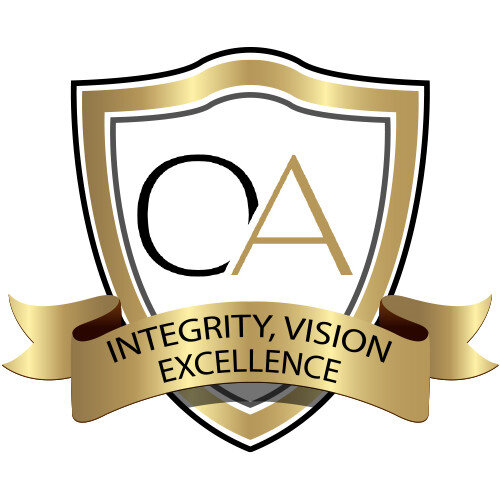Best Admiralty & Maritime Lawyers in Durban
Share your needs with us, get contacted by law firms.
Free. Takes 2 min.
List of the best lawyers in Durban, South Africa
About Admiralty & Maritime Law in Durban, South Africa:
Admiralty and Maritime Law in Durban, South Africa deals with legal issues related to activities on the sea, including shipping, navigation, marine commerce, and marine pollution. This area of law is important for individuals and businesses involved in maritime activities in Durban and plays a significant role in ensuring the safety and smooth operation of maritime trade.
Why You May Need a Lawyer:
There are several situations where you may require a lawyer who specializes in Admiralty and Maritime Law in Durban, South Africa. Some common reasons for seeking legal help include disputes over maritime contracts, injuries at sea, marine insurance claims, ship collisions, salvage operations, and environmental damage. A lawyer with expertise in this area can help you navigate the complexities of maritime law and protect your rights.
Local Laws Overview:
In Durban, South Africa, Admiralty and Maritime Law is governed by various local laws and regulations, including the Merchant Shipping Act, the Marine Pollution Act, and international conventions such as the International Convention for the Safety of Life at Sea (SOLAS) and the International Convention for the Prevention of Pollution from Ships (MARPOL). These laws cover a wide range of issues related to maritime activities and set standards for safety, environmental protection, and liability in the maritime industry.
Frequently Asked Questions:
1. What is the difference between Admiralty and Maritime Law?
Admiralty law traditionally dealt with issues specific to ships and the sea, while Maritime law is a broader term that includes all activities related to the sea, including shipping, navigation, marine commerce, and marine pollution.
2. Can I file a lawsuit for injuries sustained on a ship in Durban?
Yes, you may be able to file a lawsuit for injuries sustained on a ship in Durban under Admiralty and Maritime Law. It is essential to consult with a maritime lawyer to understand your legal options.
3. What are the key aspects of the Merchant Shipping Act in Durban?
The Merchant Shipping Act governs various aspects of shipping and maritime activities in Durban, including vessel registration, safety standards, crew qualifications, and liability for maritime accidents. It is crucial to comply with the provisions of this act to operate legally in the maritime industry.
4. How can I resolve a dispute over a maritime contract in Durban?
If you have a dispute over a maritime contract in Durban, you can seek legal advice from a maritime lawyer who can help you resolve the conflict through negotiation, mediation, arbitration, or litigation, depending on the nature of the dispute.
5. What is the role of the South African Maritime Safety Authority (SAMSA) in Durban?
SAMSA is responsible for ensuring the safety and security of the maritime industry in South Africa, including Durban. They regulate and oversee various aspects of maritime activities, such as vessel inspections, crew certifications, and environmental protection measures.
6. Can I claim compensation for environmental damage caused by a ship in Durban?
Yes, you may be able to claim compensation for environmental damage caused by a ship in Durban under the International Convention for the Prevention of Pollution from Ships (MARPOL) and other applicable laws. It is essential to consult with a maritime lawyer to understand your rights and legal options.
7. What are the requirements for vessel registration in Durban?
Vessel registration in Durban is governed by the Merchant Shipping Act and requires compliance with specific safety standards, crew qualifications, and ownership documentation. It is essential to follow the registration procedures to operate legally in Durban's maritime industry.
8. How can I protect my interests in a marine insurance claim in Durban?
To protect your interests in a marine insurance claim in Durban, it is essential to consult with a maritime lawyer who can review your insurance policy, assess the claim's validity, and negotiate with the insurance company on your behalf. A lawyer can help ensure that you receive fair compensation for your losses.
9. What are the legal implications of a ship collision in Durban?
A ship collision in Durban can have significant legal implications, including liability for damages, injuries, and environmental impact. It is crucial to consult with a maritime lawyer to understand your legal rights and responsibilities following a ship collision and to navigate the legal process effectively.
10. How can I enforce a maritime lien in Durban?
To enforce a maritime lien in Durban, you must comply with the requirements outlined in the Admiralty Jurisdiction Regulation Act and other applicable laws. A maritime lawyer can assist you in asserting your lien rights and seeking appropriate remedies for unpaid debts or damages.
Additional Resources:
For additional resources related to Admiralty and Maritime Law in Durban, South Africa, you may consider contacting the South African Maritime Safety Authority (SAMSA), the Durban Port Authority, or the South African Maritime Law Association (SAMLA). These organizations can provide valuable information and assistance for individuals and businesses involved in maritime activities.
Next Steps:
If you require legal assistance in Admiralty and Maritime Law in Durban, South Africa, it is advisable to consult with a qualified maritime lawyer who can advise you on your rights, obligations, and legal options. You can contact local law firms specializing in maritime law or seek referrals from legal organizations and industry associations to find a lawyer with the expertise and experience to assist you effectively.
Lawzana helps you find the best lawyers and law firms in Durban through a curated and pre-screened list of qualified legal professionals. Our platform offers rankings and detailed profiles of attorneys and law firms, allowing you to compare based on practice areas, including Admiralty & Maritime, experience, and client feedback.
Each profile includes a description of the firm's areas of practice, client reviews, team members and partners, year of establishment, spoken languages, office locations, contact information, social media presence, and any published articles or resources. Most firms on our platform speak English and are experienced in both local and international legal matters.
Get a quote from top-rated law firms in Durban, South Africa — quickly, securely, and without unnecessary hassle.
Disclaimer:
The information provided on this page is for general informational purposes only and does not constitute legal advice. While we strive to ensure the accuracy and relevance of the content, legal information may change over time, and interpretations of the law can vary. You should always consult with a qualified legal professional for advice specific to your situation.
We disclaim all liability for actions taken or not taken based on the content of this page. If you believe any information is incorrect or outdated, please contact us, and we will review and update it where appropriate.

















